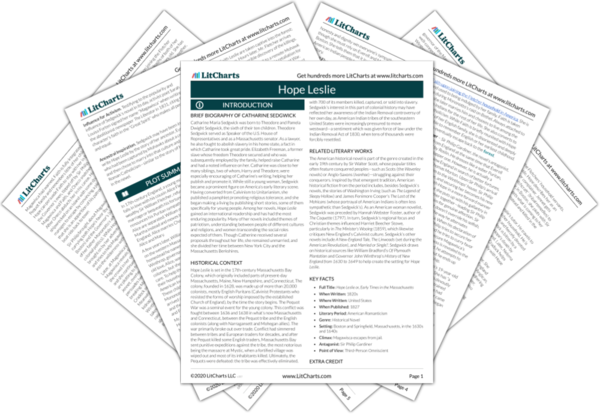Previous
Volume 1, Chapter 2
|
Previous
Volume 1, Chapter 2
|
Hope Leslie: Volume 1, Chapter 3 Summary & Analysis |
Next
Volume 1, Chapter 4
|


Upgrade to unlock the analysis and theme tracking for all of Hope LeslieHope Leslie!
Get LitCharts A+